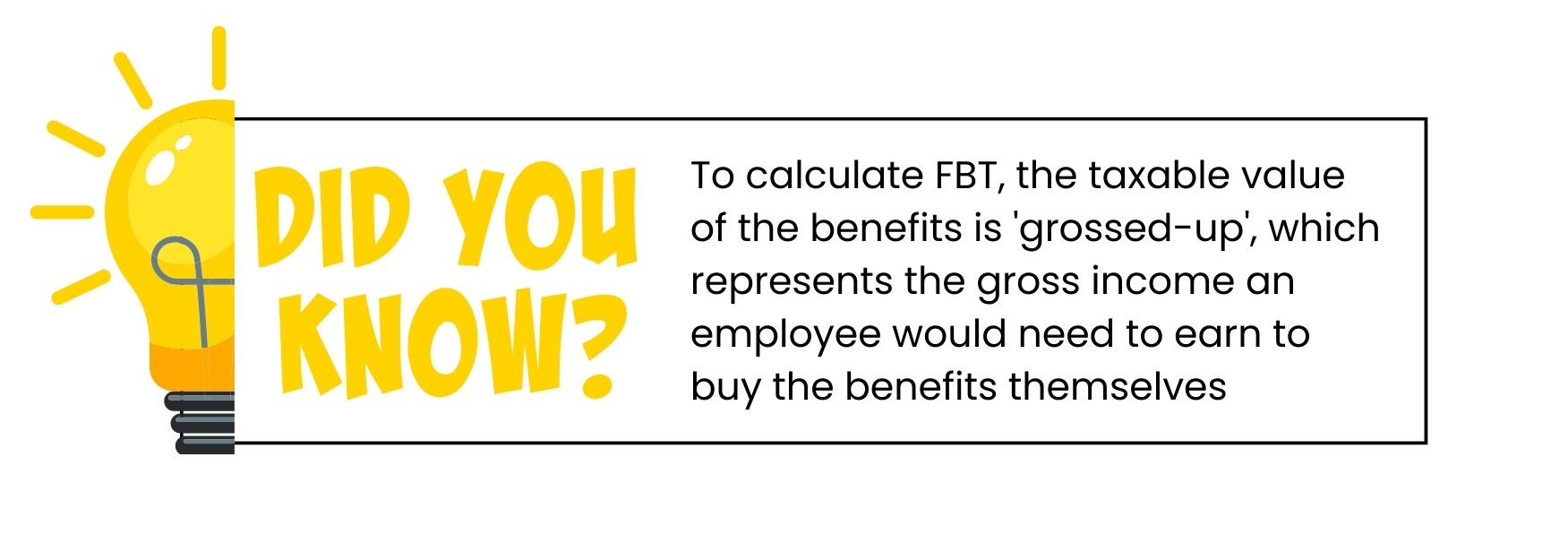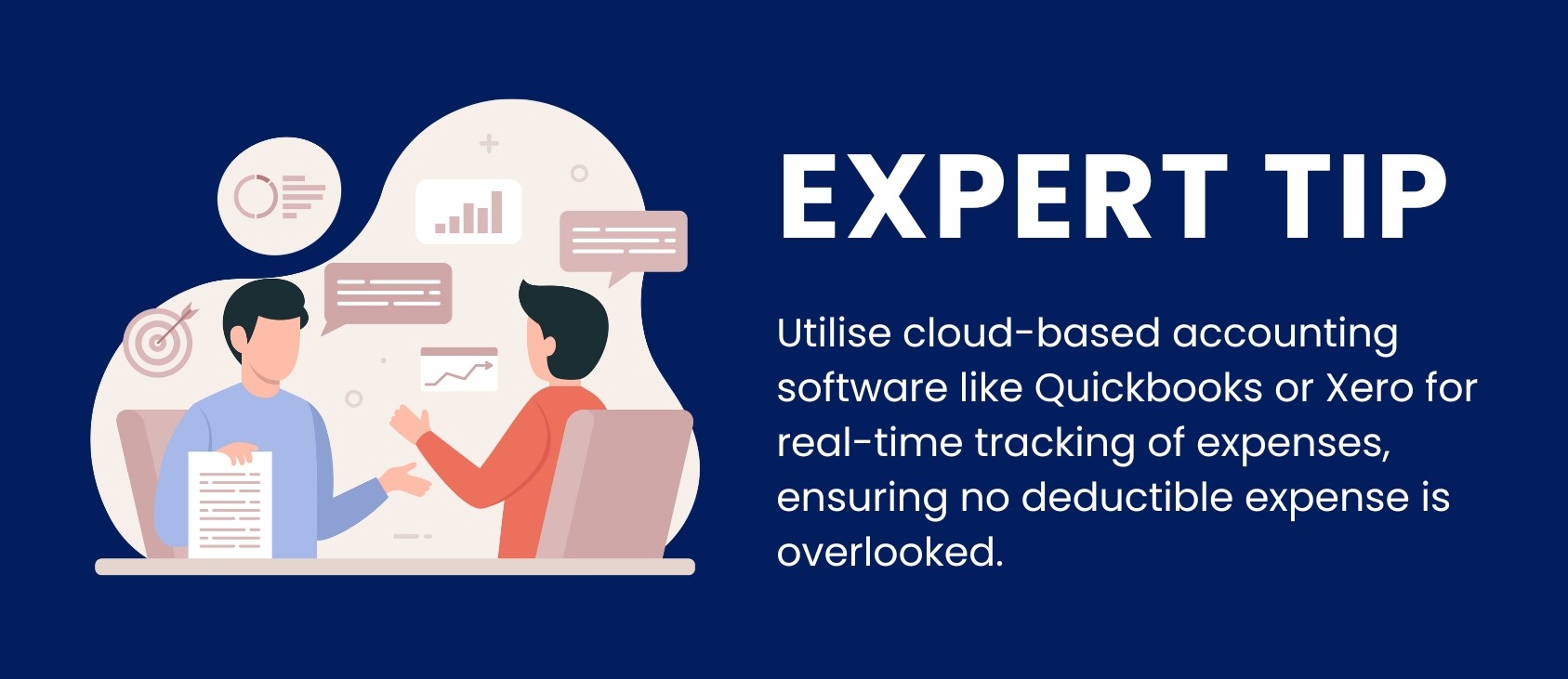What are the key tax deductions for business operating expenses?
Introduction:
As a small business owner in a bustling city, you face the daily challenge of balancing your books while seeking avenues to minimise expenses. One such avenue lies in the strategic management of operating expenses - the everyday costs like staff wages, office rent, and utility bills. These expenses, crucial for your business's day-to-day functioning, are also vital to potential tax savings.
This blog shows how understanding and effectively managing these operating expenses can streamline your operations and significantly reduce your tax liabilities. From the corner coffee shop to a tech startup, every business has the opportunity to transform these routine costs into a tool for financial optimisation and growth.
Key takeaways
Operating expenses are essential day-to-day business costs, like salaries, rent, and utilities.
Common deductible business operating expenses include stock purchases, advertising, legal fees, bank charges, and insurance premiums.
To claim deductions, maintain detailed records, especially for mixed-use expenses, and differentiate between capital and operating expenses.
A common mistake is not differentiating between capital and operating expenses for tax purposes.
Best practices include robust record-keeping and regular consultation with tax professionals.
What are operating expenses?
Operating expenses are critical to a business's management and financial health. They represent the day-to-day costs necessary for maintaining the normal operations of a company. This includes various expenditures such as salaries and wages, office space rent, utility bills, maintenance and repairs, marketing and advertising costs, and other general administrative expenses.
These expenses differ from capital expenses, which are investments in assets that benefit the business over a longer time. Operating expenses are short-term, typically used up or consumed within the financial year they are incurred.
Types of operating expenses
Operating expenses can be broadly categorised into two main types:
- The cost of goods sold (COGS) and
- General and administrative expenses (SG&A)
COGS encompasses the direct costs associated with producing and selling goods, while SG&A covers the costs related to the overall management and selling of products.
The importance of operating expenses
The importance of operating expenses in business management is multifaceted and profound. These expenses, encompassing the day-to-day costs of running a business, are more than just figures on a balance sheet. They are critical indicators of a company's operational efficiency, financial health, and strategic positioning in the market. Effectively managing these expenses ensures a business's long-term success and competitiveness.
Here are the key aspects that highlight their significance:
Financial health and profitability: Operating expenses directly impact a business's bottom line. Effective management of these expenses is crucial for determining a company's profitability. Generally, lower operating expenses relative to revenue indicate a more efficiently run business with better profit margins.
Tax considerations: Operating expenses are significant for tax purposes. Most of these expenses are tax-deductible, meaning they can be subtracted from a company's revenue to reduce taxable income, thus potentially lowering a business's tax liability.
Budgeting and cost management: Understanding and tracking operating expenses is vital for effective budgeting and cost management. Businesses must manage these expenses carefully to maintain healthy cash flow, forecast future spending, and make informed financial decisions.
Strategic planning and decision-making: Operating expenses are critical in strategic planning. Businesses can identify areas for cost reduction or increased investment by analysing these costs, aiding in resource allocation, pricing strategies, and long-term business planning.
Competitive advantage: Efficient management of operating expenses can give a business a competitive edge. Companies that maintain lower operating costs can offer competitive pricing or invest more in research and development, marketing, or customer service, leading to increased market share and profitability.
General business operating expenses that are tax-deductible
Here are a few common examples of general business operating expenses that are tax deductible:
Businesses that deal in goods must account for the cost of purchasing trading stock, including delivery charges. This expense is a primary component of the cost of goods sold (COGS) and directly impacts the gross profit.
For instance:
A café orders $2,000 of coffee beans, incurring $200 in delivery fees. Total $2,200 expense is tax-deductible as cost of goods sold.
Advertising and sponsorship expenses are vital for promoting a business and its products or services. These costs can range from online advertising campaigns to sponsoring local events or sports teams. Public relations expenses, such as hiring a PR firm to manage a business's public image or handle media relations, are also deductible. These expenses are crucial for building brand awareness and attracting customers.
Legal expenses incurred during business operations are generally deductible. This includes costs for defending future earnings, borrowing money, discharging a mortgage, or obtaining tax advice.
For example:
Fees paid to a law firm for drafting contracts or legal consultation are deductible. However, legal expenses for acquiring capital assets are not immediately deductible but are usually capitalised and depreciated over time.
Tender costs, even if the tender is unsuccessful, are considered part of the business's efforts to gain new contracts and are deductible. Bad debts, or amounts owed to a business that is no longer recoverable, can also be written off as a deductible expense. This depends on the debt previously included in the business's assessable income.
Routine bank charges related to business accounts are deductible expenses. These include account-keeping fees, transaction fees, and charges for business-related financial services. However, penalties and fines imposed by statutory bodies, such as late payment fees, are not deductible.
Insurance premiums for various business-related policies are deductible. This includes accident coverage, disability, fire, burglary, professional indemnity, public risk, motor vehicle, loss of profits, and workers' compensation. These insurance policies provide financial protection against various risks associated with business operations.
Interest on loans taken out for business purposes, such as producing assessable income or purchasing income-producing assets, is deductible. This also extends to certain financial obligations like income tax, employer superannuation contributions, and late payment or lodgment of tax.
Lease expenses for business premises or equipment are deductible. This includes rent payments for office space, retail locations, or machinery. Stationery expenses, such as paper, pens, and office supplies, are also deductible as they are necessary for daily operations.
Small-value items like mobile phone and tablet accessories (e.g., protective covers and earphones) are deductible, as are costs for running a commercial website, including site maintenance and content updates. Internet service providers and subscription fees for off-the-shelf software used in business operations are also deductible.
Transport and freight costs incurred in business operations, such as shipping goods to customers or transporting equipment, are deductible. Similarly, expenses for waste removal and recycling services necessary for business operations are deductible.
Parking fees (excluding fines) and small-value items costing $100 or less are deductible as they are considered minor business expenses. These small expenses, although individually insignificant, can accumulate substantially over time.
Expenses similar to those claimed by employees
Business owners can also claim deductions for certain expenses similar to those claimed by employees, including:
Union dues and professional subscriptions: Fees for memberships in trade unions or professional bodies related to the business are deductible. For example, a construction company's payments to a builders' association.
Clothing expenses: Costs for uniforms or protective clothing required for work are deductible. This includes expenses for specific uniforms with logos or safety gear for employees working in hazardous conditions.
Education and training: Expenses incurred for the education and training of employees are deductible. This can include costs for attending workshops, conferences, or formal education courses related to the business.
Travel expenses: Costs associated with business travel, including transportation, accommodation, and meals, are generally deductible. This applies to travel for business meetings, site visits, or industry conferences.
Expenses from employing people
If your business employs staff, you can claim deductions for related expenses, such as:
- Salaries and wages: The remuneration paid to your employees, including bonuses and commissions, is deductible. This is a significant expense for most businesses.
- Fringe benefits: Any additional benefits provided to employees, like company cars or health insurance, are deductible. This includes the cost of fringe benefits tax (FBT) that the business may incur.

- Training and development: Costs associated with training and developing employees are deductible. This can include in-house training programs, external courses, and professional development workshops.
- Superannuation contributions: Employer contributions to employees' superannuation funds are deductible. This is an essential aspect of employee remuneration and includes mandatory and voluntary contributions.
- Workers' compensation insurance: Premiums paid for workers' compensation insurance are deductible. This insurance is mandatory for most businesses and covers employees in the event of work-related injuries or illnesses.
Business premises operating expenses that are tax-deductible
Expenses related to the location of your business are also tax deductible, such as:
- Accountant fees: Fees paid for tax planning and return preparation are deductible. This includes costs for both internal accounting staff and external accounting firms.
- Tax advice: Costs for professional advice on significant tax matters during complex transactions are deductible. This can include advice on tax structuring, compliance, and dealing with ATO audits
- Software and tools: Expenses for tax-related software and tools used in managing tax affairs are deductible. This includes software for accounting, payroll, and tax return preparation.
- ATO fees and penalties: While most penalties and fines are not deductible, specific fees paid to the ATO, such as those for private rulings or late lodgment fees under specific circumstances, may be deductible.
- Bookkeeping and record-keeping expenses: Costs associated with maintaining accurate financial records for tax purposes are deductible. This includes expenses for bookkeeping services, financial software subscriptions, and record-keeping supplies.
Struggling with Record-Keeping?
- Rent or lease payments: Monthly office space or retail premises payments are deductible. For instance, a cafe leasing a space in a shopping centre can deduct these lease payments.
- Utilities: Costs for services like electricity, water, and internet used in the business premises are deductible. This includes expenses for heating, cooling, and maintaining the business environment.
- Maintenance and repairs:Expenses for maintaining and repairing business premises are deductible. This can include costs for painting, plumbing repairs, or fixing equipment.
- Security services: Costs for security services, such as alarm systems or security personnel, are deductible. This is particularly relevant for businesses that require enhanced security measures.
- Cleaning services: Expenses for cleaning services used in maintaining the business premises are deductible. This includes regular cleaning services and occasional deep cleaning or sanitation services.
How do I claim deductions for operating expenses?
To claim tax deductions for operating expenses, businesses must keep detailed records. For mixed-use expenses (used for personal and business purposes), it's necessary to maintain logs to determine the percentage of business use.
For example:
If a business owner uses their car for business and private trips, they must keep a logbook to claim the correct portion of car expenses.
Similarly, for home office expenses, a clear distinction of the area used for business purposes is required to claim deductions accurately. It's also essential to distinguish between capital expenses (like purchasing equipment) and operating expenses, affecting their deductibility.
A robust record-keeping system ensures that all eligible deductions are claimed accurately. Regular reviews of expenses and consultations with tax professionals help maximise legitimate deductions and maintain compliance with ATO regulations.
Common mistakes and best practices
One common mistake in claiming deductions is the failure to differentiate between capital and operating expenses. Capital expenses, such as purchasing major equipment or property, are treated differently for tax purposes and are usually depreciated over time.
Another error is overlooking small expenses, which can cumulatively have a significant impact on tax liabilities. Best practices include implementing a robust record-keeping system, regularly reviewing expenses to identify deductible items, and consulting tax professionals for advice.
Understanding the specific deductions applicable to your business or NFP organisation is crucial, as these can vary based on industry and activities. For NFPs, understanding the principle of mutuality and its application to expenses is key. This principle affects the deductibility of expenses related to activities that generate mutual income (income from transactions with members).

Wrap up!
For small business owners, adeptly managing operating expenses is not just about keeping the lights on; it's a strategic avenue for tax optimisation and financial growth. From everyday costs like staff wages and office rent to more nuanced expenses such as advertising and legal fees, each plays a pivotal role in shaping your business's fiscal health and potential tax savings.
At CleanSlate, we understand these nuances and offer tailored accounting solutions to maximise your deductions and minimise expenses. Our team of experts ensures your financial records are meticulously maintained, providing the clarity and compliance needed for effective tax management. Partner with us to transform your operating expenses into a strategic asset for your business's growth and sustainability. Get in touch with us now.

































